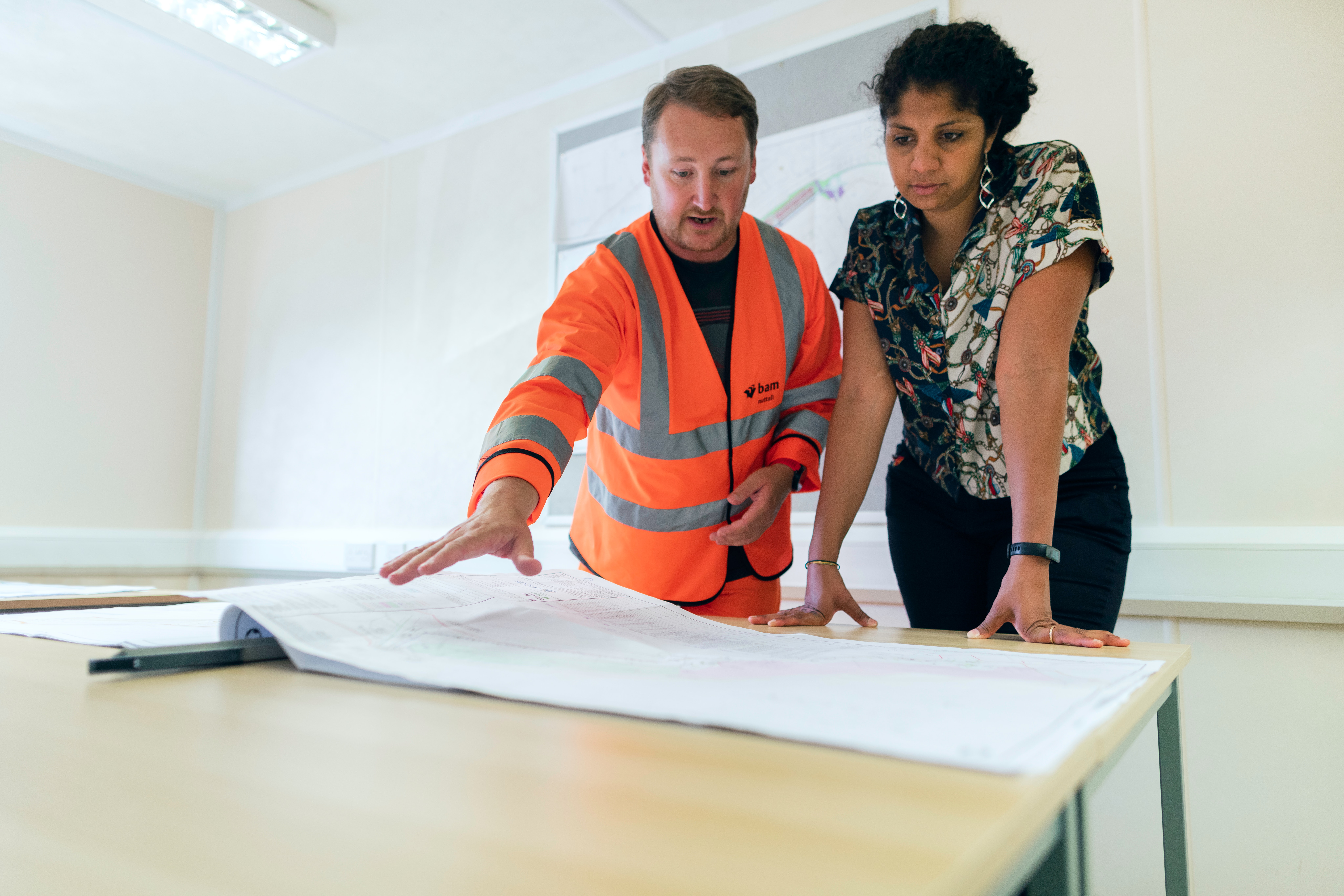The modern world is increasingly driven by technology. New innovations and breakthroughs are continuously reshaping various industries. From computers in classrooms to the fervor around tools like ChatGPT, every corner of our modern world is increasingly not just impacted by technology, but evermore reliant on it.
The construction sector, traditionally slower to adopt new technologies, has reached a turning point where digital transformation is crucial to remain competitive and efficient. Sadly, many construction companies continue to forgo the advantages of new applications and tools in favor of “how we’ve always done it.” This is a missed opportunity for company growth and a missed opportunity to tap into the true potential of team members, both in the office and at the job site.
In this blog post, we will explore how emerging technologies are revolutionizing the construction industry, with a particular focus on the implications for COOs and CFOs.

The Role of Data in the Construction Industry
Data has become an essential part of decision-making in every industry. The construction sector is no exception. Accurate, timely, and actionable data enables construction companies to optimize their operations, reduce costs, mitigate risks, and make more informed decisions.
SelectView Data Solutions is at the forefront of this data-driven revolution, helping construction companies harness the power of their data to improve overall performance through tools like Invoice Search and AASHTOWare. Let’s explore how other technologies are impacting construction companies large and small around the world.
Key Technologies Transforming the Construction Industry
Building Information Modeling (BIM)
Building Information Modeling (BIM) is a digital representation of a building’s physical and functional characteristics. It allows architects, engineers, and construction professionals to collaborate on a single, unified model, streamlining the design and construction process.
BIM brings numerous benefits to the construction industry, including:
- Improved visualization and communication
- Enhanced coordination and collaboration
- Reduced errors and rework
- More accurate cost estimation and scheduling
- Improved facility management and maintenance
One notable example of BIM’s impact is the construction of Denver International Airport’s Hotel and Transit Center. By utilizing BIM, the project team was able to identify and resolve potential design and construction issues before they became costly problems. This proactive approach resulted in a 12% reduction in project costs and a significant reduction in the project schedule, saving both time and money.
Drones and Aerial Imagery
Drones have become an invaluable tool in the construction industry, offering a cost-effective and efficient way to gather aerial imagery and survey data. Their abilities include:
- Site inspection and progress monitoring
- Topographic mapping and terrain analysis
- Structural inspections and damage assessment
- Stockpile and resource management
The use of drones in construction brings several benefits, such as:
- Faster data collection and analysis
- Reduced need for manual labor and equipment
- Improved safety by minimizing workers’ exposure to hazardous conditions
- More accurate and up-to-date information for decision-making
Consider how a large construction company leverages drones to monitor progress on a 1,000-acre residential development. By using drones as an ‘eye in the sky’, the company can track construction progress, identify discrepancies between planned and actual work, and address issues promptly. Such technology enables a significant reduction in field reporting time and an overall improvement in project efficiency.
Artificial Intelligence and Machine Learning
Artificial Intelligence (AI) and Machine Learning (ML) are subsets of computer science focused on creating systems capable of learning from data and making intelligent decisions. In the construction industry, AI and ML can be used for various purposes, including:
- Predictive maintenance and equipment management
- Project scheduling and resource allocation optimization
- Cost estimation and budget forecasting
- Risk assessment and safety analysis
AI and ML offer numerous benefits to the construction industry, such as:
- Improved decision-making through data-driven insights
- Enhanced efficiency and productivity
- Cost savings through optimized resource allocation
- Reduced risk and improved safety
Construction companies can use AI and ML algorithms to predict potential equipment failures and optimize maintenance schedules. This proactive approach reduces both downtime and maintenance costs..
Internet of Things (IoT)
The Internet of Things (IoT) refers to the network of physical objects embedded with sensors, software, and other technologies to connect and exchange data with other devices and systems. In the construction industry, IoT can be used for purposes like:
- Real-time equipment tracking and management
- Automated materials replenishment
- Environmental monitoring and safety alerts
- Building automation and energy management
The use of IoT in construction brings several benefits, including:
- Improved operational efficiency through real-time data and automation
- Enhanced safety with environmental monitoring and alerts
- Cost savings through optimized resource management
- Better decision-making through data-driven insights
In a large infrastructure project, IoT sensors were used to monitor the condition and usage of construction equipment in real-time. This allowed the project team to optimize equipment utilization, prevent unauthorized use, and proactively address maintenance needs, resulting in a 25% improvement in equipment utilization and a significant reduction in equipment-related costs.
The Impact of Technology on Construction Operations and Finance
Emerging technologies are not just changing the way construction projects are designed and executed. They are also transforming construction operations and finance. By leveraging these technologies, construction companies can achieve increased efficiency and productivity, substantial cost savings, enhanced risk mitigation, and improved decision-making. These benefits translate directly into a stronger bottom line, making technology adoption a strategic imperative for COOs and CFOs in the construction industry.
How SelectView Data Solutions is Empowering the Construction Industry
The construction industry is undergoing a significant digital transformation, driven by the rise of technologies like BIM, drones, AI/ML, and IoT. These technologies are revolutionizing the way construction projects are designed and executed, bringing numerous benefits to construction operations and finance.
As we look to the future, the pace of technological innovation is only set to accelerate, opening up even more opportunities for efficiency, cost savings, and improved decision-making in the construction industry. It’s an exciting time to be in construction, and we at SelectView Data Solutions are committed to helping construction companies harness the power of technology to drive their success.
SelectView Data helps construction companies get the most out of their Viewpoint investments. From custom reporting and integrations to powerful tools like Invoice Search and AASHTOWare, we have a rich history of bringing powerful, yet simple, technology solutions to organizations eager to become more efficient and grow faster. To learn more about how our team at SelectView Data Solutions can bring new technology to your construction company, contact us here.



